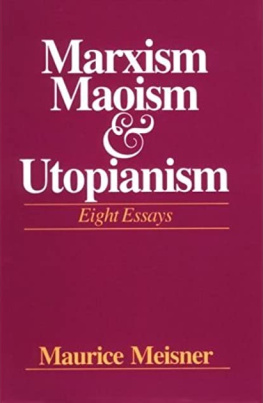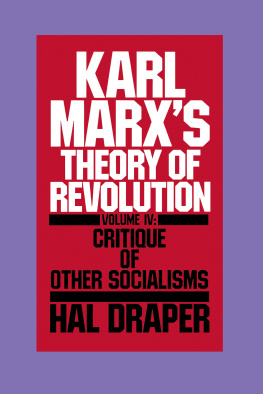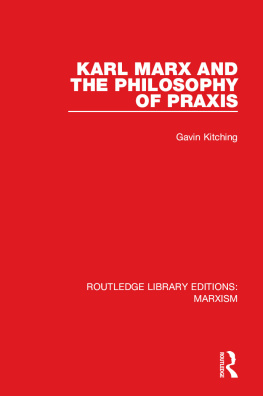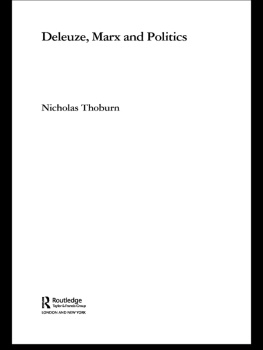First published 2000 by Ashgate Publishing
Reissued 2019 by Routledge
2 Park Square, Milton Park, Abingdon, Oxon, OX14 4RN
52 Vanderbilt Avenue, New York, NY 10017
Routledge is an imprint of the Taylor & Francis Group, an informa business
Copyright 2000, Darren Webb
All rights reserved. No part of this book may be reprinted or reproduced or utilised in any form or by any electronic, mechanical, or other means, now known or hereafter invented, including photocopying and recording, or in any information storage or retrieval system, without permission in writing from the publishers.
Notice:
Product or corporate names may be trademarks or registered trademarks, and are used only for identification and explanation without intent to infringe.
Publisher Note
The publisher has gone to great lengths to ensure the quality of this reprint but points out that some imperfections in the original copies may be apparent.
Disclaimer
The publisher has made every effort to trace copyright holders and welcomes correspondence from those they have been unable to contact.
A Library of Congress record exists under LC control number:
ISBN 13: 978-1-138-72000-8 (hbk)
ISBN 13: 978-1-315-19519-3 (ebk)
Marx was not a utopian system-builder. He did not sit alone at night sketching plans for a better society, nor did he spend his time deliberating on the form that communism would (or should) take once the proletarians had victoriously shed their chains and gained the world. Marxs opposition to utopianism was total and unwavering. Those socialists who did construct utopian systems were criticised on the grounds that their political methodology implied an elitist process of prophetic messianism founded on nothing short of deceit. And yet, in spite of this, it cannot be denied that Marx himself was a utopian of sorts. For he presented us with a vision of communism that has variously been described as more dazzling in its utopianism than that of even the most utopian of utopian socialists (Kumar, 1987, p.53) and the grandest and noblest vision in human history (Hunt, 1984, p.97). My primary aim in this book is to offer an interpretation of Marx which accounts for this apparent ambiguity in his thought.
That Marx was both a utopian and a critic of utopianism has long been recognised. Indeed, this paradox neatly characterised by Steven Lukes as Marxs anti-utopian utopianism (1984, p. 155) provides the intellectual framework around which most of the discussions concerning the relationship between Marxism and utopianism are constructed. But what does it actually mean to suggest that Marx was both a utopian and a critic of utopianism? What, in other words, do Utopians do and what do critics of utopianism criticise? Here I follow J. Max Patrick when he suggests that:
A Utopia should describe in a variety of aspects and with some consistency an imaginary state or society which is regarded as better, in some respects at least, than the one in which its author lives (cited in Sargent, 1975, p. 140).
As it is to be used here, then, the term utopia refers to a) an imaginary state or society which b) is regarded as better than the one in which its author lives and c) is described by that author in a variety of aspects and with some consistency. By logical extension, a utopia becomes someone who creates and describes such a state or society and utopian/s/w refers to the general act of creating and describing such societies. Whilst some writers may quibble with this definition, most, I think, would agree that it adequately captures the main features of utopia and the various terms derived from it. I am confident, therefore, that when we discuss what other people have had to say about these things we can avoid talking at cross-purposes.
With regards to what other people have in fact had to say, I think it fair to suggest that the utopia/anti-utopia paradox has seldom been considered a pivotal aspect or defining feature of Marxs thought. What I shall argue here, however, is that his anti-utopian utopianism was symptomatic of the fundamental problems which confronted Marx throughout his life. The problems were those of generating radical hope without foreclosing the future; of capturing the spirit of revolution whilst remaining faithful to the principles of proletarian self-emancipation and self-determination. So important did Marx consider these problems that resolving them became his own political and theoretical project.
Of course, we are now so used to the idea that there were multiple Marxes (Carver, 1998), each of whom spoke in a different language and possessed a different spirit (Derrida, 1994), that to ascribe a (in the singular) project to Marx may appear rather old fashioned. If it does then so be it. In suggesting that Marxs ideas were framed and guided by a common purpose, however, I am not at all denying that Marx said different things at different times. I am merely suggesting that Marxs works were consistent in their aims , i.e., that they represented varied attempts to deal with the same problems. The fact that Marx sometimes said conflicting (and even contradictory) things does not, therefore, mean that these things were each spoken in a different language by a different Marx. It simply means that in attempting to solve the problems he was attempting to solve Marx sometimes proposed conflicting solutions.
The central thesis of this book is that the theoretical origins of Marxs anti-utopian utopianism lie precisely in the conflicting solutions he proposed to the problems that he set himself. The problems were those of generating radical hope and of capturing the spirit of revolution whilst simultaneously avoiding the need for utopianism and all the paternalistic, elitist and messianic baggage that came with it. The solutions he proposed, however, were never quite adequate to the task. Indeed, on the basis of the solutions he proposed I come to the conclusion that Marx was an accidental utopian. By this I mean that the visionary concepts which together define his utopia were not the product of any conscious attempt on Marxs part to give concrete shape to an imaginary state or society which he regarded as better than the one in which he lived. Instead, these concepts each formed an integral (and ultimately indispensable) part of the historical models designed by Marx in order to overcome the need for utopianism. As such, the origins of Marxs utopianism lie, not in the utopian imagination he so persistently ridiculed, but rather in his failure to establish the logical coherency of his (anti-utopian) historical framework.
Having argued this, what I do in the Conclusion is offer some thoughts on the role to be played by utopian thought within contemporary Marxism. However, rather than mount a defence of political utopianism on the grounds that Marx failed to establish a coherent alternative, I focus instead on the power of Marxs critique and also on its continuing vitality. Rejecting the pro-utopian position adopted by so many writers over recent years, I argue that utopianism conceived as a political tool cannot help but descend into the messianic elitism so accurately described by Marx. I also tentatively suggest that the future of socialism lies in its ability to harness, not the spirit of utopia, but the spirit of adventure.











